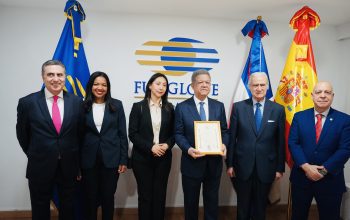news
The Dominican Republic Plays an Instrumental Role in the Special High-Level Meeting of the UN Economic and Social Council with the Bretton Woods Institutions, the World Trade Organization and the United Nations Conference on Trade and Development
April 30, 2009
Global Foundation for Democracy and Development (GFDD) and Fundación Global Democracia y Desarrollo (FUNGLODE) participated in the Special High-Level Meeting of the Economic and Social Council with the Bretton Woods Institutions, the World Trade Organization and the United Nations Conference on Trade and Development organized by the Financing for Development Division of the United Nations Department of Economic and Social Affairs on April 27, 2009. The objective of the high-level meeting was to assemble representatives of Member States, The World Bank, the International Monetary Fund (IMF), The World Trade Organization (WTO), the United Nations Conference on Trade and Development (UNCTAD) and civil society organizations to discuss the impacts of the global financial and economic crisis on
development and strategies to improve the current international financial architecture and global governance structures. During the session, stakeholders discussed the risks posed by the global financial and economic crisis on economic and social development and the achievement of the Millennium Development Goals.
 |
|
Director of the Center for Global Studies |
By the end of 2008, most advanced economies had entered a period of severe economic recession and since then the crisis has spilled into the developing world. Such a
global economic depression has not been seen since World War II. Projected world economic growth for 2009 is projected to be zero or below. If this is the case, trade flows “… would decline by at least 3 per cent in 2009, after growing 4.1 per cent in 2008 and 7.2 per cent in 2007” (Coherence, coordination and cooperation, 2). The World Bank estimates that developing countries this year will experience a $270-700 billion financing deficit (Conference,
coordination and cooperation). In terms of official development assistance, the report by the ECOSOC Secretary-General Coherence, coordination and cooperation in the context of the implementation of the Monterrey Consensus and the Doha Declaration on Financing for Development indicates that donors are $39 billion short of fulfilling their international aid commitments. The Economic and Social Council warns that due to lack of financing, developing countries “… risk suffering very serious setbacks to their development objectives …” (Conference, coordination and cooperation, 5). The ECOSOC advocates that such financial constraints to development merit effective and efficient cross-sectoral action. The Council asserts that due to the severity of the crisis, only substantial stimulus packages that far exceed normal budgetary considerations will be able to address the urgent existing needs. ECOSOC also strongly encourages the creation of mechanisms aimed at assisting poor and vulnerable populations to better cope with the financial and economic crisis, such as The World Bank’s Vulnerability Fund.
During the high-level meeting, member states and representatives from multilateral institutions and civil society organizations stressed the dire repercussions of the financial and economic crisis on poverty eradication and
development in developing countries – states already hit hard by the food and fuel crisis, commodity price volatility and the challenges associated with climate change. They discussed how severe declines in world output, global trade flows,






